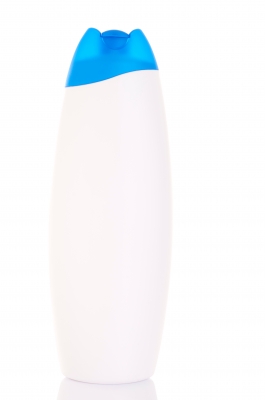
 In a former post titled, “Is There Plastic In Your Facial Scrub?”, I told you all that many of today’s exfoliating face and body washes use polyethylene-a plastic substance-to create scrubbing beads.
In a former post titled, “Is There Plastic In Your Facial Scrub?”, I told you all that many of today’s exfoliating face and body washes use polyethylene-a plastic substance-to create scrubbing beads.
Unfortunately, unlike natural and organic products that use sea salts and other natural ingredients to exfoliate, these products give you the illusion of natural exfoliation while polluting our rivers and lakes.
Now, a recent article in The Windsor Star reports that these plastic beads are polluting our Great Lakes. According to a scientific survey, the tiny bits of plastic found in cosmetic products are gathering in Lake Erie, Lake Superior, and more, and are considered one of the newest and most concerning environmental dangers.
If you needed another reason to avoid chemical ingredients in your personal care products, this is a good one.
“We’re plasticizing our water,” said Sherri Mason, associate chemistry professor at the State University of New York’s College at Fredonia, New York, and principal investigator for this study.
Too Many Microbeads
According to the survey results, Lake Erie contains more than 450,000 plastic particles per square kilometer-double what similar surveys have found in oceans. Plastic microbeads were also found in surface water samples last year from lakes Superior and Lake Huron.
Where are these microbeads coming from? You’ll find them not only in your body and face washes, but also in toothpaste, sunscreen, lip gloss, eyeliner, shampoo, deodorant, and soaps. They are not only used for exfoliating the skin. They can also make products feel creamy on the skin, and help fill in wrinkles.
Estimates are that one facial cleanser tube contains 350,000 beads.
Dangerous to the Environment-and Our Health
The problem with these beads is that not only are they polluting our waterways, they are also being eaten by fish and other wildlife-which harms the animals’ digestive tracts. Worse, when animals eat them, that means we may eventually end up eating them, too.
“These microplastics absorb pollutants, are eaten by organisms, and enter the food chain, potentially affecting human health,” said Dr. Marcus Erickson, Co-founder and Research Director for the 5 Gyres’ Institute.
These plastics can’t be removed from water by waste treatment facilities, so they end up traveling right on through to pollute the environment. Scientists say they’re the “next big marine debris concern.” So far, there are no viable prospects for how to get these microplastics out of our waterways-which makes it even more important to stop putting them in.
5 Gyres is dedicated to preventing plastic pollution in the world’s oceans. They launched a campaign to get manufacturers to stop using these plastic exfoliants and switch to biodegradable options instead. The good news-three companies have agreed to do just that by 2015.
- Johnson & Johnson
- Unilever
- The Body Shop
Proctor & Gamble also agreed phase out microbeads by 2017, but 5 Gyres is pressuring them to move up the deadline. You can read more about this campaign at the following website.
“Get the Plastic Off My Face and Out of My Water Now!”
How to Protect Yourself and Your Environment
If you’re fed up with plastics in your products, take action today. Stop purchasing those products that use plastic microbeads. Look for the following on the labels:
- Contains microbeads
- With microabrasives
- Polypropylene
- Polyethylene
For natural alternatives, look for exfoliants like these (if you have sensitive skin, avoid apricot seeds and walnuts as they can be abrasive):
- Cocoa beans
- Almond exfoliants
- Apricot seeds
- Sea salts
- Coffee beans
- Sesame seeds
- Sugar scrubs
- Walnuts
Do you avoid plastic microbeads in your products? Please share your thoughts.
Picture courtesy artur84 via freedigitalphotos.net.
Sources
Sharon Hill, “Plastic pollution a problem in the Great Lakes,” The Windsor Star, July 2, 2013, http://blogs.windsorstar.com/2013/07/02/plastic-pollution-a-problem-in-the-great-lakes/.
Margaret Badore, “3 companies commit to removing plastic beads from their body products,” Tree Hugger, July 2, 2013, http://www.treehugger.com/clean-water/3-companies-commit-removing-plastic-beads-their-body-products.html.
Zoe Mintz, “Microbeads from Facial Cleansers May be Polluting the Great Lakes with Plastic,” International Business Times, June 27, 2013, http://www.ibtimes.com/microbeads-facial-cleansers-may-be-polluting-great-lakes-plastic-photo-1326515.

